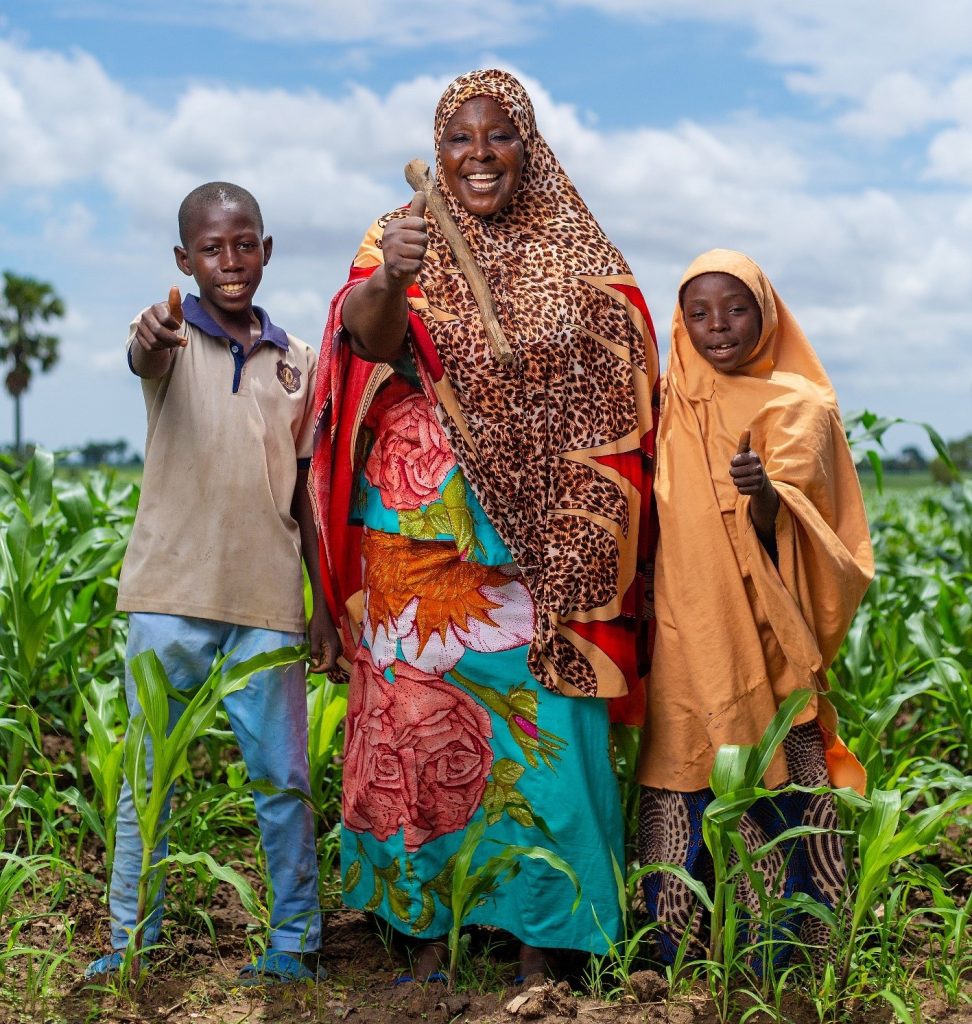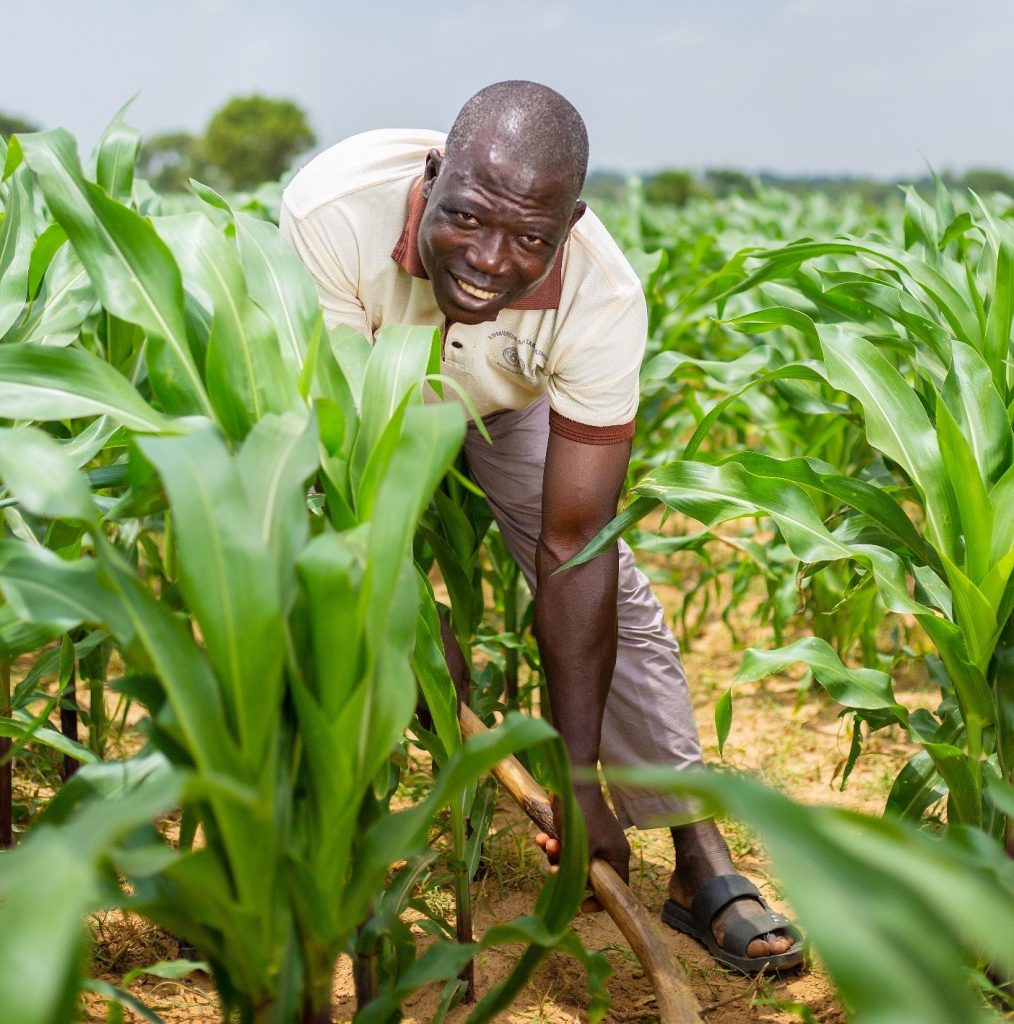Written by: Aja Beckham
The COVID-19 pandemic has exacerbated food insecurity among the Nigerian population, particularly those in rural farming communities, who are among the most vulnerable and adversely affected by this ongoing health and economic crisis.
Kola Masha, Managing Director of Babban Gona, a Nigerian-based agri-tech social enterprise, says that since the Trade Hub awarded a $500,000 co-investment grant to the company in May 2021, there are less concerns about food insecurity because farmers now have agricultural packages and training to increase food supply.
“The pandemic significantly impacted the maize and rice supply chains, causing commodity prices to increase. Some rural populations weren’t able to afford food,” says Masha. “But the co-investment supports smallholder farmers with agricultural packages and trainings, and now their yields and net incomes are 2 times and 2.5 times the national average, respectively.”
As a direct result of Babban Gona’s co-investment partnership with the Trade Hub, the company has been able to significantly increase rice and maize production and improve food security in Kaduna, Benue, Cross River, and Niger States—focus areas for USAID’s Feed the Future initiative. During the duration of the project, Babban Gona will leverage approximately $15.4 million of private funds.
The co-investment partnership is expected to generate $33.1 million in sales from the anticipated 90,000 metric tons of harvested grains for this past 2021 season. Of that amount, an estimated $20.1 million will be paid out to the benefiting farmers in profits and bonuses.
Sahura Dauda, a maize farmer based in Kaduna State, says that Babban Gona’s Trade Hub-supported project has allowed her to increase her crop yield. Sahura hopes that one day, with continued help from Babban Gona, she can travel to Mecca, own houses, and continue to pay for her children’s school fees.

as a farmer on Babban Gona’s Trade Hub-supported project
Photo credit: Babban Gona
“Since working with Babban Gona, I have experienced remarkable changes. Before, I hardly got more than 10 bags but now I harvest 50 to 60 bags. Last year, I harvested about 100 bags,” says Dauda. When the pandemic hit, a lot of people had challenges, but God brought relief to us through Babban Gona and I did not feel the effects of the situation.”
“After I joined Babban Gona, I was able to pay for one son’s college tuition and my other children’s secondary school tuition,” says Audu. “Honestly, it’s done everything for us.”

Photo credit: Babban Gona
Babban Gona also provides smallholder farmers with harvesting and marketing services and financial credit to improve their labor productivity, market access, and incomes.
Prior to the 2021 planting season, approximately 2,500 smallholder farmers supported through Babban Gona’s Trade Hub partnership were trained on best agronomic practices, including land selection, fertilizer application, appropriate spacing techniques, and managing pests and diseases. Then, agricultural packages were distributed.
For maize production, agricultural packages were distributed to over 56,000 farmers, mainly in Kaduna State. It included 880 pounds of fertilizer, 55 pounds of seeds, and 2 liters of herbicides for each standard hectare field.
For rice production, 432 farmers, mainly based in Benue and Cross River States, received 660 pounds of fertilizer, 130 pounds of seeds, and 2.5 liters of herbicides for each standard hectare field.
Collectively, farmers harvested over 40,000 hectares of maize, which is about 56,000 soccer fields and 200 hectares of rice, which is close to 280 soccer fields.
During September to December 2021, Babban Gona also provided hermetic storage facilities to preserve 90,000 metric tons of grain, which will reduce post-harvest losses and further help to improve food security in the four key Nigerian States.

